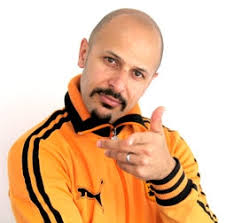My editorial about Twilight, Judy Blume, and Susan Juby appears in the new Vancouver Review.
GIRL POWER GONE?
Andrea Warner worries about the Twilight trend
When I was 13, I wanted to know about sex. And boys. And love. I wanted to figure out what was up with boobs and why they were a big deal for some and an even bigger deal for others. I had hair sprouting in places I wasn’t supposed to touch. I wanted answers but there was no one I could ask, particularly about the “dirty” stuff.
So, like most young, curious people at the time, I turned to books. I wish I could say that I found solace with Jane Austen and Virginia Woolf, but rather than the modest, melancholy heroines gracing those hallowed pages, I craved blunt honesty about troublesome girls who seemed more like me. I wanted the facts, with all of their humiliating, naughty, ugly and revelatory moments.
There was only one author who seemed to speak my teenage language, a woman whose books were often kept on a higher shelf in the library: Judy Blume. Two decades later, Blume has a worthy successor in BC-bred young-adult author Susan Juby, whose books depict regular teenagers dealing with their daily lives. And, like Blume’s, Juby’s fiction has gotten panties in a twist, primarily because she dares to dwell in real teen territory. She’s paid the price by having her books banned in various cities, schools and school libraries throughout North America, including a middle school in Settler, Alberta.
Juby’s books, like Blume’s, advocate intelligence, character development, and honest depictions of sexuality in a teen environment. These books are vital to empowering youth, particularly emerging women, because they demand self-reflection. It’s important for girls to read about teens who fuck up, even fictional ones, because it answers their questions, plays out scenarios, and fills the gaps in their own experience to help them relate, survive, grow up.
Miss Smithers, Juby’s novel set in rural BC, captures the small-town angst of bored teens everywhere. Alice, her flawed yet ferociously witty 16-year-old heroine, makes plenty of bad choices and acts like a real teen. The book has been banned in schools because Alice attempts to lose her virginity (to no avail). Another Kind of Cowboy tackles sexuality in a different way in that Alex, a young horse enthusiast, realizes he’s gay. These stories tackle the social dynamics young people face.
These works are worlds, nay galaxies, apart from the recent book-series-turned-blockbuster-movie Twilight, a young-adult vampire romance by Stephanie Meyers. At the start of the series, 16-year-old new kid in school Bella captures the attention of the mysterious, aloof pretty boy Edward. He’s intoxicated by the smell of her blood, and attracted to her because he can’t read her mind. (Because she’s so complex! Just like every girl wants to be!) She’s equally obsessed, intrigued by the danger and depth of his torturously long stares.
Bella’s a mirror for many young women who like to read, fantasizing that the best-looking boy will pick her over the blond cheerleader. She’s bookish, shy, klutzy and a virgin. It’s notable that a key segment of Twilight’s fan base wears abstinence rings, a message drilled home by Edward’s refusal to deflower his damsel in distress for fear he may lose control of his vampire strength and hurt her.
Bella’s virginity and Edward’s gallant behaviour have hit a chord with another group beyond the coveted tween-to-teen demographic: their moms. It wasn’t just allowances and babysitting money keeping the Twilight series (four books total) firm at the top of the bestseller charts. When Twilight shattered box-office records on its opening day, there were at least two generations to whom one could attribute ticket sales.
Meyers’ value system—she’s a Mormon—may or may not be what keeps Bella and Edward from bumping bits; an author is entitled to write whatever she wants. My concern is that mothers and others responsible for children’s education, so eager to dissuade and subdue sexuality, have overlooked the fact that Twilight romanticizes sexism, stripping young women of all sense of empowerment—an offence all but invisible when compared with Juby’s, it seems.
I can't help but feel sick at the perpetuation of the idea that a boy is all a teenage girl needs to feel complete. And that if they had sex, she’d die. Blume’s characters obsessed over boys. So do Juby’s. The difference is that in Meyers’ world, a world that mothers are pushing on their daughters with uncomfortable urgency, a girl doesn’t just obsess over a boy but has an almost sacrificial relationship with him. Bella is religiously devoted to Edward, her character and identity entirely consumed by her desperation to be with him; the books dwell on Bella’s declarations of undying love and her oft-repeated desire to be turned into a vampire.
Meyers has created a world in which Bella’s a perpetual victim, always in danger and requiring the constant presence of Edward or some other man to protect her. It’s doubly galling to recognize that Twilight’s largest fan base (particularly online) is comprised of mothers, the by-products of second-wave feminism.
Banning books like Juby’s denies young people a choice of role models, and gives credence to the notion that denial works. Given its not-so-subtle nod to Shakespeare’s fatalistic Romeo and Juliet scenario, coupled with the purity pledge, advocating Twilight to your female teen is tantamount to sentencing her to three marriages, five kids, and an unhealthy dependency on her parents when she can’t keep her man. Feminism rides bitch (usually in the backseat rather than the driver’s seat, as it were) in Twilight, and it’s damned depressing to realize that women are to blame for its success.



























